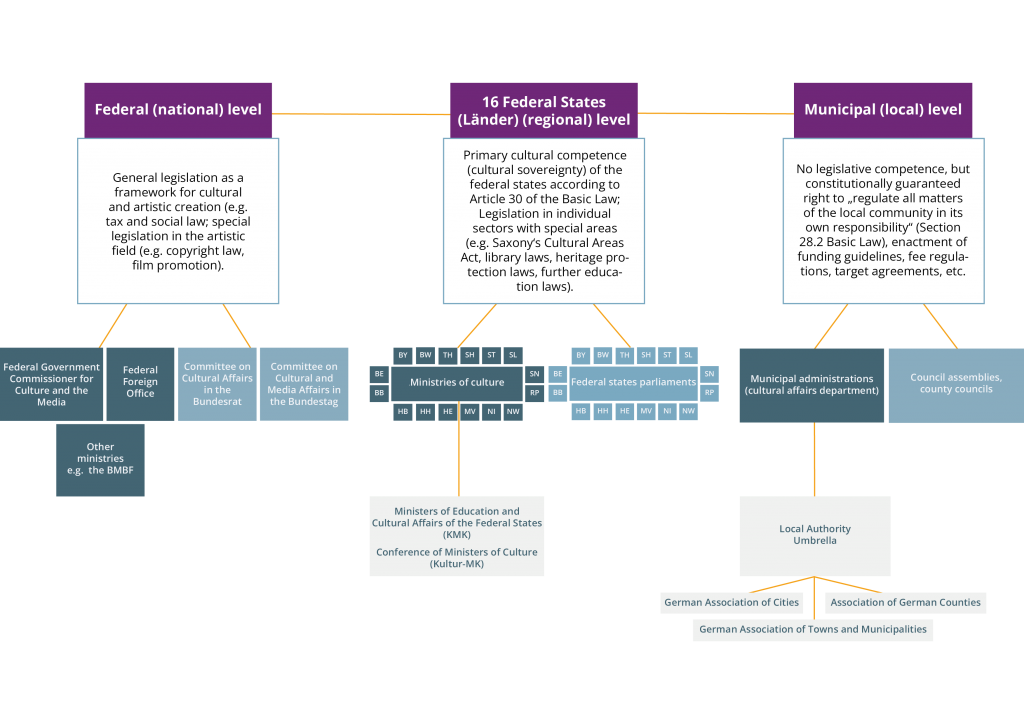Germany is a federally organised country with different levels of government:
- the federal state or federation (i.e. the national authorities, parliament, etc.),
- the federal states (as autonomous states),
- and the municipalities (cities, municipalities, districts).
The German Constitution (Grundgesetz) sets out the division of responsibilities and competences between the different levels of government.
Article 30 of the German Constitution assigns most competencies to the federal states (Länder): “the exercise of state powers and competencies is a matter for the federal states (Länder), except where specifically stipulated or permitted by the German Constitution”. At the moment, there is no general constitutional clause giving the Federal Government responsibility for areas such as culture or education. Therefore, cultural affairs “together with responsibility for schooling and higher education” are seen as the “heart of the sovereignty of the Länder”, expressed in the term “cultural sovereignty” of the Länder.
As the most important public actor in the cultural sphere, the federal states are thus responsible for setting their own political priorities, for funding their respective cultural institutions and for promoting projects of regional significance. However, the federal and state governments are by no means the only public actors in cultural policy. The local authorities, i.e. the cities and districts, also have a cultural mandate and can refer to the Basic Law (Article 28, Paragraph 2) and to provisions in the respective state constitutions, which have generally given the municipalities their own cultural responsibility within the overall structure of public competences.
In this federal and highly decentralised system, political responsibility is assumed by the legislative bodies of the Federation and the Länder (parliaments) and the self-governing bodies of the municipalities (council assemblies) and their committees responsible for culture. The government authorities (ministries of culture) or the administrations of the municipalities (cultural departments) are responsible for the technical implementation. The structure of the ministries and
-The number of departments varies; often different departmental tasks are bundled together.
Within the framework of their competences, the Federal Government, the Länder and the municipalities have room for manoeuvre in terms of cultural policy, i.e. extensive freedom to shape the type, scope, focal points and priorities of their cultural promotion.
Tab. 1: The different levels of German cultural policy


Comments are closed.